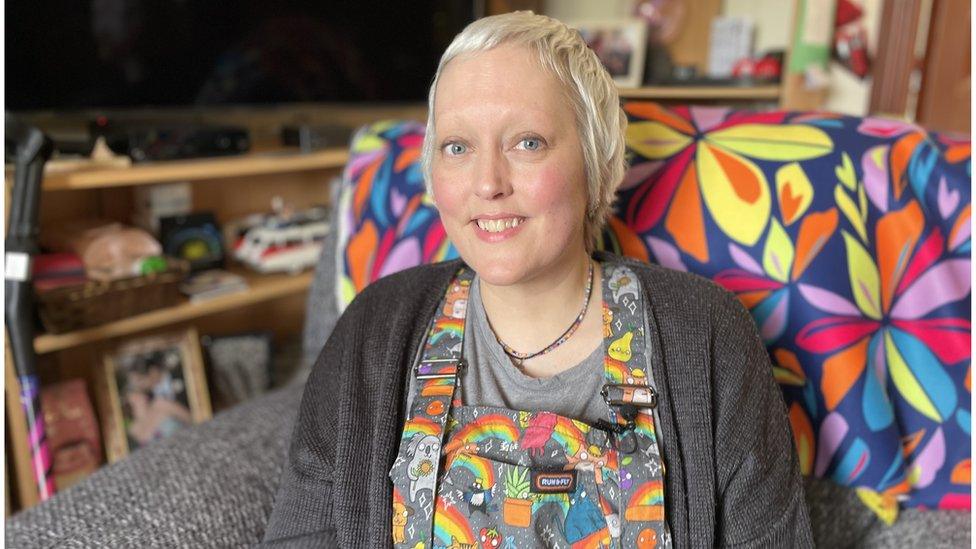Cost-of-living crisis: Mother skips meals after benefit ends
- Published
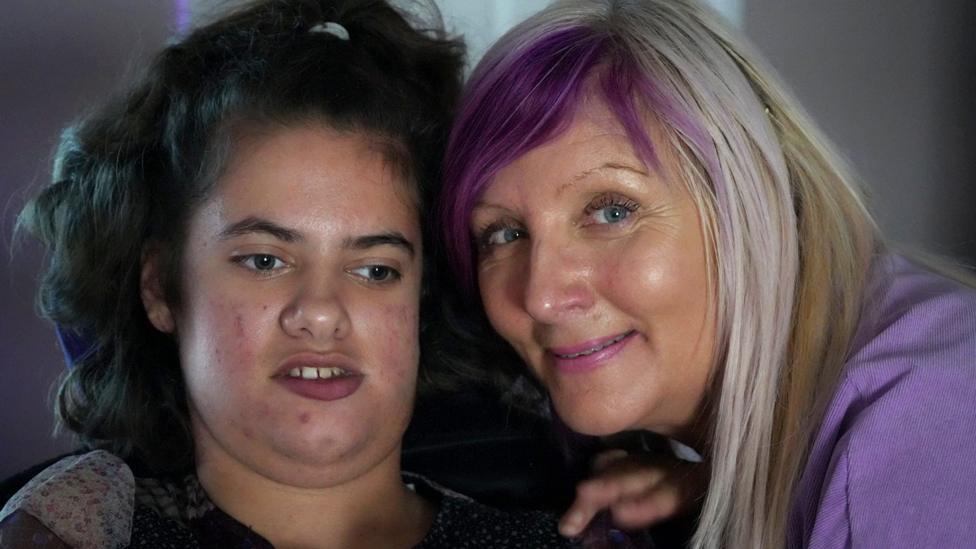
Yvette Clements says she needs to ensure she has enough money for heating because her daughter cannot regulate her temperature
A mother said she cannot afford to eat dinner after the government stopped a cost-of-living payment.
Yvette Clements, 59, from Norwich, is a carer for her daughter Rosey, who cannot regulate her body temperature.
Their heating has to be turned on most of the time and their bills have risen to £300 a month.
"I only eat breakfast and lunch now because I can't afford dinner," she said.
The government gave six million disabled people a £150 payment to cope with the cost-of-living crisis, external in the autumn of 2022 and the summer of 2023.
It has not announced any further plans to help disabled adults who are twice as likely to live in poverty, external.
'This is a degrading way to live'
Rosey, who has cerebral palsy and epilepsy, needs an electric bed, an electric bath, an electric hoist, a feeding machine and CCTV to monitor her in the night due to her seizures.
Ms Clements can only turn off the heating when 25-year-old Rosey is at college which is run by the disability charity Sense.
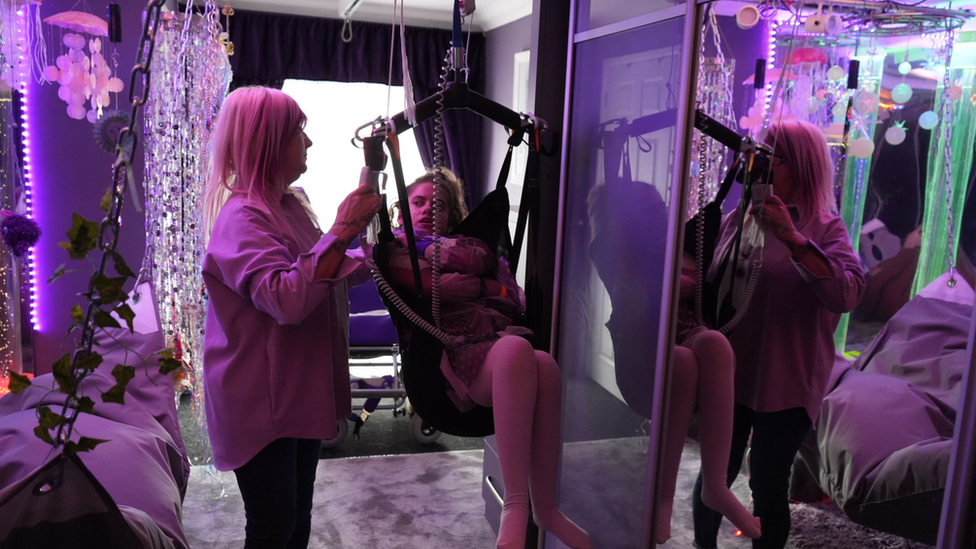
Rosey's favourite place is her sensory room but Yvette Clements is having to limit her daughter's time in there due to costs
"I never turn my oven on anymore and I sit in the cold when she's not here but I can't risk that when Rosey is home because she might have a seizure.
"I would rather go hungry and make sure she is ok. I know I am doing a fantastic job looking after my girl but this is a degrading way to live.
"The cost-of-living crisis is not over and that extra money was a lifeline to me," she said.
Ms Clements gets universal credit, which includes a carer's allowance and housing costs, while Rosey receives personal independence payment.
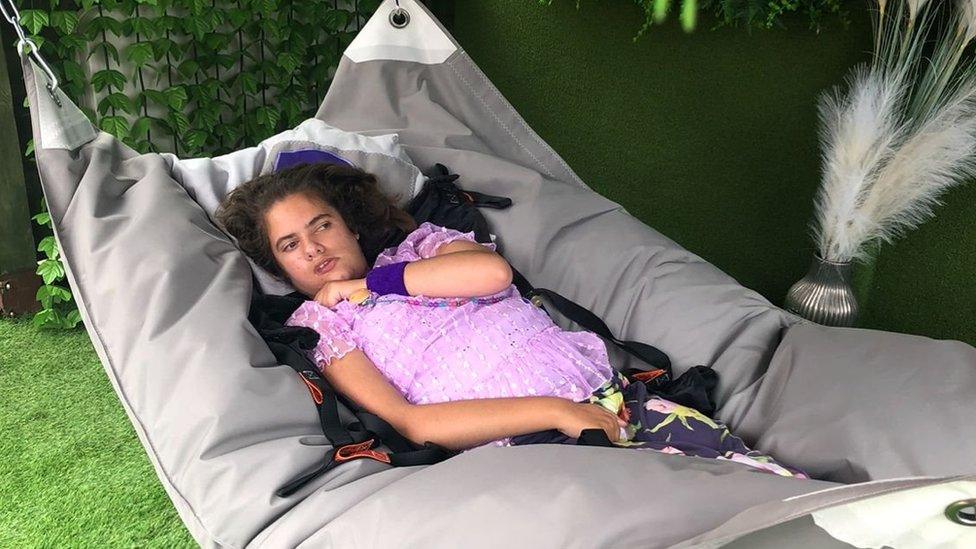
Rosey has cerebral palsy, epilepsy and is registered blind
Sense gave the family a £500 emergency payment in 2022, and £200 in 2023 to help cover their bills.
The charity recently polled more than 1,000 disabled people and found 53% were in debt because of the rising cost of living, while 18% had reduced their use of specialist equipment.
Sarah White, head of policy at Sense, said the government needed to provide more financial support.
"We are in favour of the government reinstating the disability cost-of-living payment but we also know that for many people this was a drop in the ocean compared to rising costs.
"We need to see long-term solutions implemented, such as a social tariff on energy bills," she said.
More than 50,000 people have signed a petition, external calling for the cost-of-living payment to be reinstated.
Tom Howard, 27, from Bury St Edmunds, who created the petition, is delivering a copy to Downing Street on Tuesday.

Tom Howard created the petition that calls for the payments to be reinstated
"Energy bills have gone up by 5% this January," he said. "The government should be continuing to help those most vulnerable in our society.
"But it is not just about money. It's about dignity, independence and survival for thousands across our nation.
"The payment, although far too small, acted as an essential lifeline that helped to cover basic needs such as food, heating and transportation."
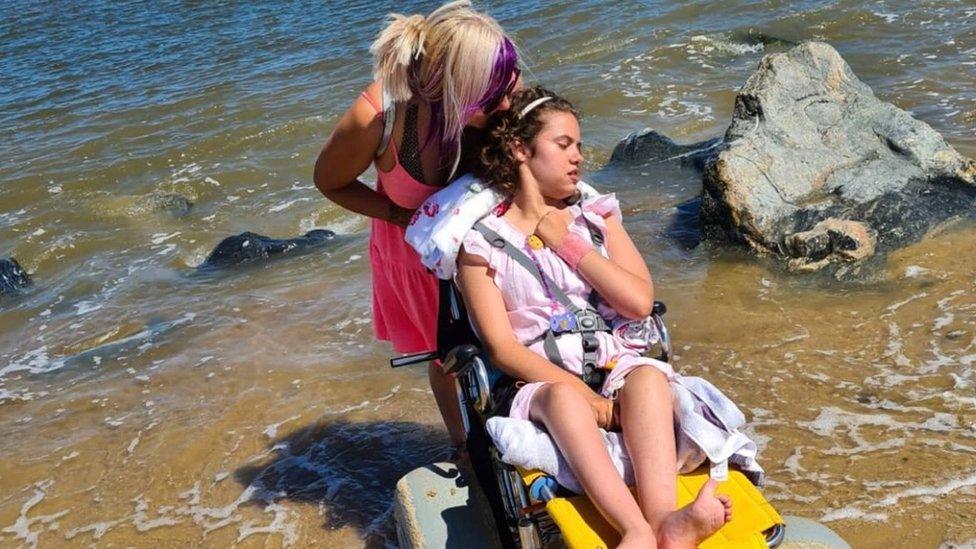
Rosey's mother wants to spend their time together making memories
Research from the charity Scope found that disabled households needed an extra £975 a month, on average, to have the same standard of living as non-disabled households.
It surveyed 2,000 disabled people and found that 38% were not using heating while 34% were skipping meals.
Louise Rubin, head of policy and campaigns at the charity, said the government had "slammed the door in the face of disabled people this winter".
"With no further support on the horizon, the government must keep its promise to consult on an energy social tariff as a matter of urgency."
Daniel Jennings, senior policy and campaigns officer at Epilepsy Action, said the charity was also urging the government to reconsider its decision.
"It's disheartening to see the needs of people with a disability being cast aside, and other issues prioritised, when the increased costs they face haven't gone away," he added.
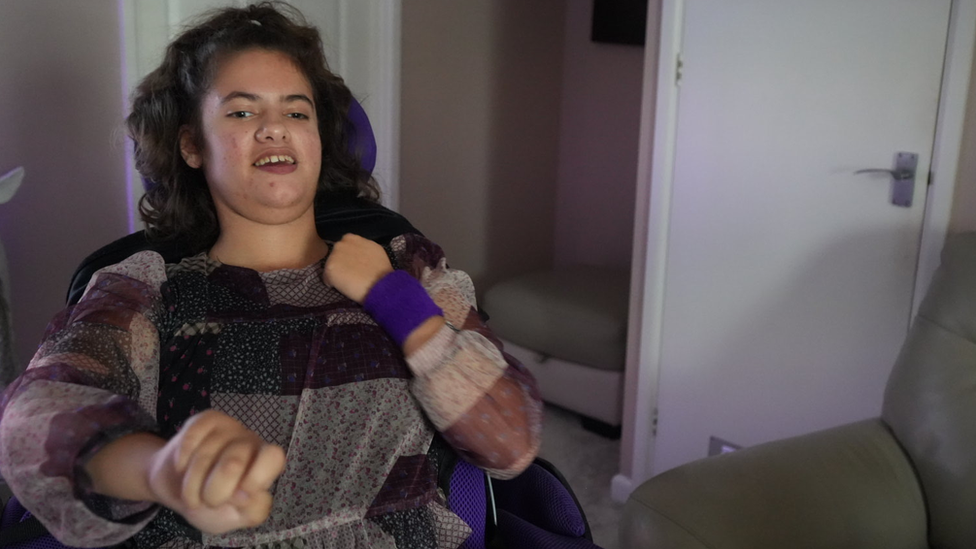
The charity Sense gave the family two emergency cash grants, which it says reflects the urgency of the situation
A spokesperson for the Department of Work and Pensions said: "While we've halved inflation to make everyone's money go further, we are committed to supporting the most vulnerable with the cost of living whilst balancing our responsibility to the taxpayer.
"Our £104bn support package includes delivering a further cost-of-living payment to people on eligible benefits in February and our back to work plan will help up to a further 1.1 million people with disabilities, long-term health conditions or the long-term unemployed to look for and stay in work."

Follow East of England news on Facebook, external, Instagram, external and X, external. Got a story? Email eastofenglandnews@bbc.co.uk , externalor WhatsApp 0800 169 1830
Related topics
- Published15 February 2024
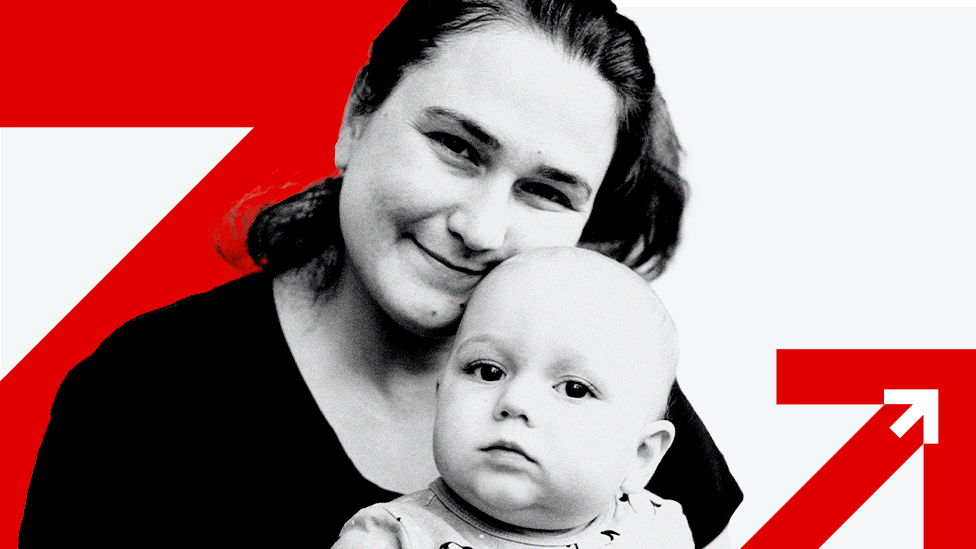
- Published13 May 2022
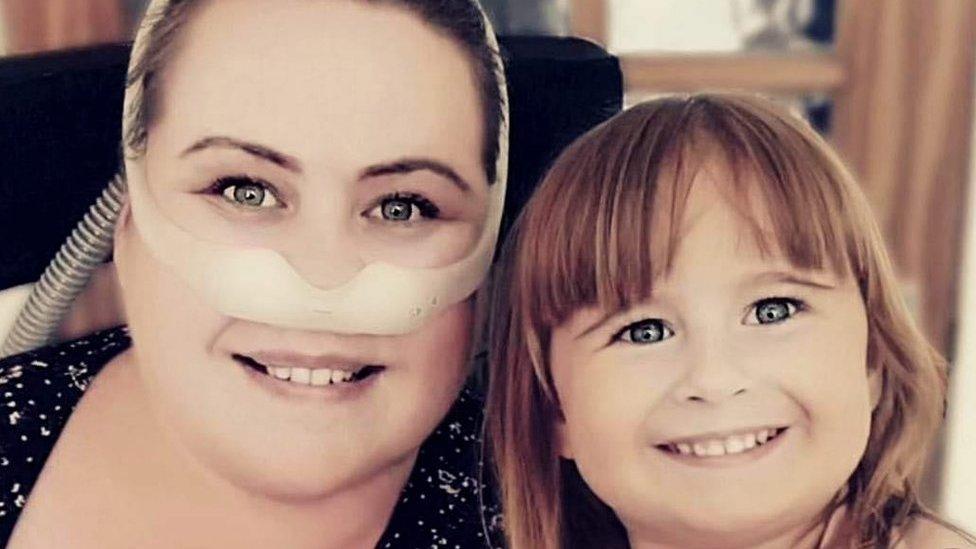
- Published19 October 2022
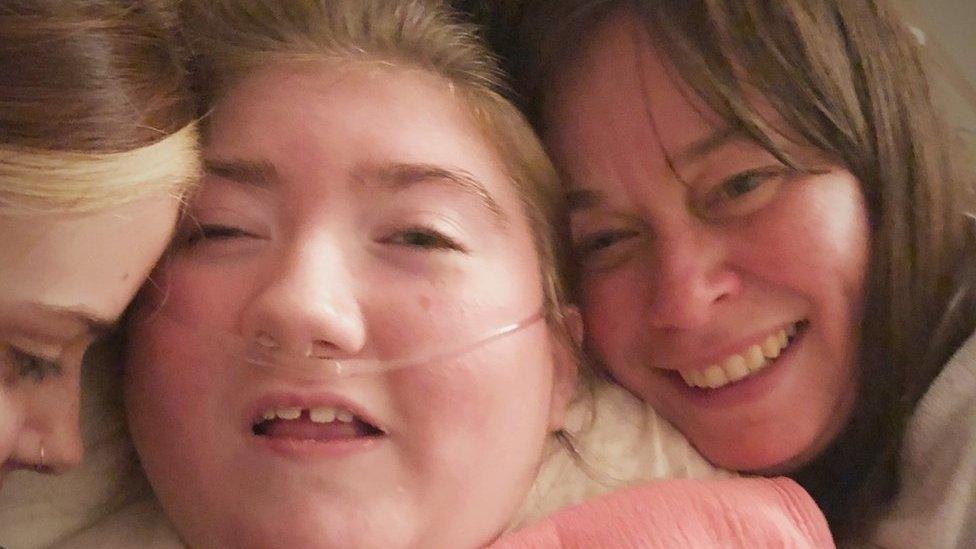
- Published19 October 2022

- Published7 October 2022
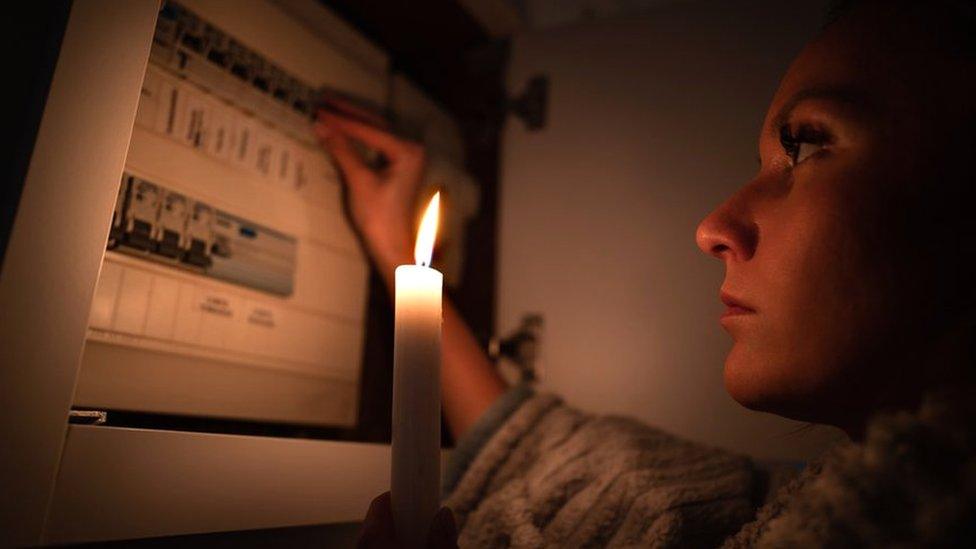
- Published12 May 2022
